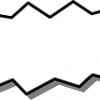Hub titles: short or Long
I've seen conflicting advice in the forums about the length of titles. Given that google is always changing how searches are done, I thought some advice might be outdated. Is it better to have short titles of 7 words or fewer or is it better to have "long-tailed" titles with more words for the search engine to "see"?
The rule is that Titles should be no more than 60 characters, including spaces, and less than that depending upon how many capital letters you use. Other than that, you want to be careful about duplicating exact-match, long-tail keywords in the title due to the EMD Penalty.
Other than those, there are no rules. So much depends upon which keyword phrase(s) you are targeting with your Hub. The best thing to do is go to Google and do a search for your keyword phrase(s) and see what titles your competition uses. Take your cues from the high-ranking webpage titles.It is not the length of your title that is important, it is how important your title is to warrant being long - within HP's character limit.
If your title is keyword packed, it will rank high on Google (but HP might be miffed at the keyword overload). Secondly, your summary is key, so if your title doesn't grab the reader's attention, your last shot to draw the reader in is your summary.
If your title is keyword (SEO) friendly, I say there is nothing wrong with having a long title - within HP's character limit. Writer Fox and others who are SEO savvy and more experienced at titling hubs (with proven traffic) may not agree with me.
A long title "may be cut off" at the middle in search results returns and not give a clear picture of your subject matter. At this point, the reader has to rely on your good summary to decide if they want to read it.
If your title is not keyword friendly, the longest title in the world won't help you get traffic, and especially if it is chock full of colorful adjectives or overuse of the words - "the" "and" "of" "my" "I.'
Google doesn't want pretty, or flowery or long titles. It just wants pretty GOOD titles.
In my niche articles, I use the same intro words with a colon followed by my actual title. It makes it long, but I make my summary so provoking that readers want to click to read it.
If my original preferred title is already taken on HP and if it has proven to rank high in Google search results, I'll have to add some intro words to be able to use that title on HP. In my case, I use themes to separate my hub categories. Of course, doing so makes it a longer title so my summary has to be stellar.
What is important to Google is what Google sees to rank it.
What is important to readers is 1) an attention getting title, and 2) how much info the reader is given in the summary for them to judge if they want to read the article or not. Your summary should be your ace in the hole in case your title doesn't rope them into clicking on title.I thought HP wants to follow what Google wants and keyword stuffing is a no-no in Google.
I am not talking key word stuffing. I'm talking about getting one "keyword phrase" into the title.
What I said was: "If your title is keyword packed, it will rank high on Google (but HP might be miffed at the keyword overload)."
My world does not revolve around HP. To write on HP, keyword packing is frowned on. Keyword-specific titles are not the same as titles that are keyword packed.
Other websites (blogs, etc.) do keyword pack and SEO target their subject matter. Google still ranks them high but probably more because of their choice of a unique subject and not their keyword overload.
I like specific titles so readers know what the article is about and I try to put at least one keyword in the title to increase my ranking chances with Google. But I don't waste a lot of time on keywording my title. I want my title to say what my article is about and if one of the words in a title happens to be a recognized keyword, it was just luck because it fit in with what I wanted for a title.
Not all writers don't do this next part, but I do.
Immediately after I publish, I submit the URL to Google's search engine (then Bing and two others) - even before HP features the hub or they have the chance to QAP it. Right after I hit PUBLISH, I always share it to my HubPages feed with the "H" button on the right column.
Even if I change the content over the next few hours, I'll leave the title and summary alone because the article is already in Google. Within an hour, it appears in search results.
And as long as I don't fiddle with the title or summary, Google knows where my article is in order to bring me traffic (outside of HP). And to me, that's all that counts.Yes, keyword stuffing is a no-no in titles too, because keyword stuffing means repeating the same keywords.
I went on google and checked character length. I see that google cuts off at 60 characters. I also see some of my titles are longer than 60 characters, but there is enough title in the first 60 character to tell the reader what the post is about. I think I do fairly good summaries, but I will review them all to make sure there are key words in them as well as the "tease" --the phrase that gets people to want to read more. Question: Even if part of the title is cut off, does the cut off part still help with search? Also after the title is the summary the second most important thing in search.
Your title - cut off or not - will come up in a search with all similar subject articles. Just because "we" can't "see" the whole URL or title doesn't mean Google can't see it or that they won't put it in the results for searches when people query that partcular subject matter.
Yes, after your title, the summary is the second most important part because it is your second chance to draw in your reader, especially if they can't "see" your complete "unique" title in the search results.
I have read that the first three and last three words in a title are the most important and therefore 6 words is the optimum. I always try to keep my titles at 56 characters or less, and that seems to work for me.
Title should be one that clearly tells about your article in one sentence so that it gives the reader a choice to go ahead further or no.
As far as the length of the title is concerned, keep it precise but it should definitely have the primary (and sometimes secondary) keyword in your title.It is not number of words, it is characters, 60 characters or less counting spaces. If title is too long, part of it will be cut off in the search engine.
As many as 25% of Page Titles are changed algorithmically to display on Google's search engine results pages. These changes may not keep just the first 60 characters (including spaces), but will pick and choose from all the words in your title..
If you don't limit the size of your Title, you are loosing a unique opportunity to control what searchers see.
As I mentioned above, the actual number of characters displayed depends upon how many capital letters you use in your title. It also depends upon how much of your title is comprised of the target keyword phrase, which will be bolded. See this for more information:
http://moz.com/blog/new-title-tag-guide … eview-tool
Related Discussions
- 43
Tip For Rookie Hubbies
by Jerrico Usher 17 years ago
I'm seeing a lot of new Hubbers in the forum lately so I thought I'd offer up some starter tips. I'm by no means an expert at this stuff but I have learned a few things that may help you with SEO and Google traffic: (this is a bit long so if you don't like long posts you probably should click out...
- 15
Should your url be your title?
by Dorsi Diaz 15 years ago
When I first started writing at HubPages I was under the impression that one should make the url and the first title of their hub the same.So my question now is: When trying to write the url for maximum traffic, how much should you really deviate on the main title? Or does it even matter if the key...
- 26
Any rule of thumb about how long your Title should be?
by Mary Hyatt 14 years ago
I know how important it is to give your Title meaning, but how long is too long? On some of mine that I include photos and instructions, if I say that in the Title, it gets pretty long, but I want people to know that info.
- 28
Are URL's or Titles what Google looks for?
by Sinea Pies 14 years ago
To get recognized on Google, does it search your URL or Title or both? How does that work?
- 29
Working on Titles
by Sondra Rochelle 9 years ago
I am of those people who has a terrible time getting my titles right. Recently, I've come up with a new strategy which has made it easier, and may help you guys, too.I open my word processorI open the Google Keyword Tooland I open https://moz.com/blog/new-title-tag-guid … eview-tool which is...
- 44
Everyone seems to ask this, but WHAT is a keyword? Examples?
by Laurel Rogers 13 years ago
I have been here on HP over 3 years, and still don't fully comprehend the concept! I get that they are words and/or phrases that reflect the content of your article, aren't tags, and that they're not to be 'stuffed'. Apparently I have some block to this, since some of my articles have...













